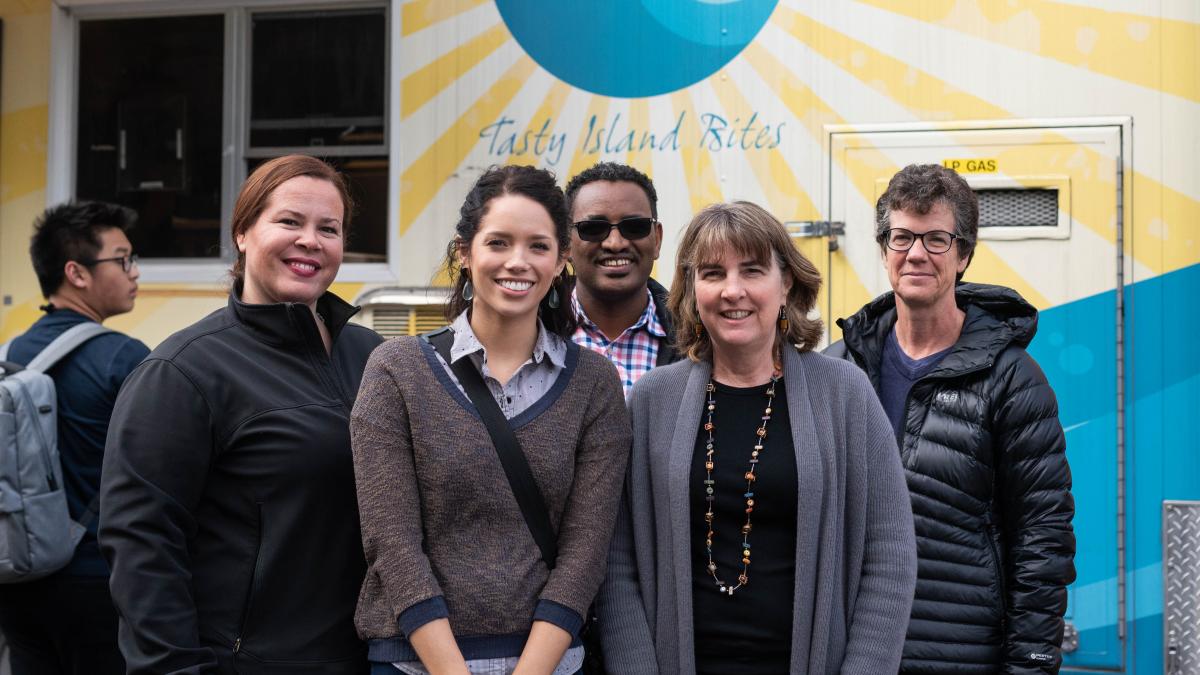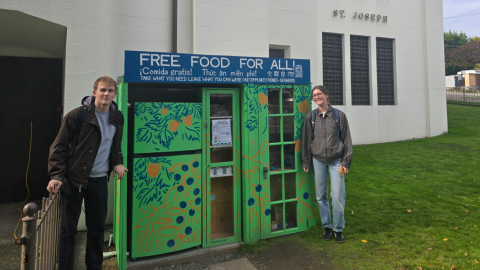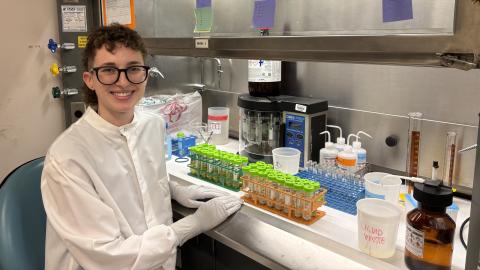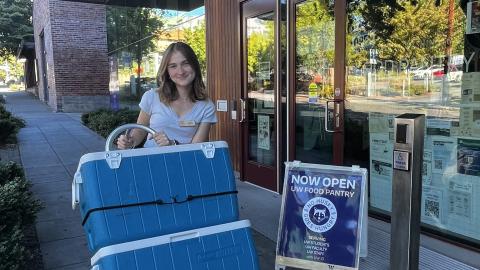Editor's note: In fall 2022, the Clean Safety & Health in Food Trucks (Clean SHiFT) team received a 2022 Safer Choice Partner of the Year award from the US Environmental Protection Agency.
Harsh cleaners like bleach can affect food industry workers breathing in concentrated chemicals and impact the environment when they go down the drain. Many people are unaware there are safer alternatives.
Experts from the University of Washington have joined forces with a food truck association, a community organization and state and county agencies to identify and promote safer cleaning methods for food trucks, where employees work in confined spaces and are now cleaning more often because of the pandemic.
With funding from UW EarthLab, the cross-sector team created Clean SHiFT: Safety and Health in Food Trucks, a website launched this month with tools to improve the adoption of green cleaning and safer chemicals, especially in underserved and rural communities.
Equity for food truck workers and operators
The Clean SHiFT toolkit integrates food safety and occupational health regulations from the state Departments of Health and Labor & Industries and includes a fact sheet, available in English and Spanish, with a six-step protocol to transition to safer chemicals.
The effort centers around health equity, ensuring that small business owners—many of whom are immigrant entrepreneurs—receive up-to-date health and safety information to keep workers and customers safe, said Nancy Simcox, assistant teaching professor in the UW Department of Environmental & Occupational Health Sciences (DEOHS) and director of the department’s Continuing Education programs.
“Our goal is to impact the system at the policy, regulatory and equity levels,” she said. “Our next steps include sharing the research and resources with local health departments, regulators and the food truck community. We will continue to work with our partners on sustainability activities to help shift the industry to a more green cleaning process.”
Simcox is working to disseminate the toolkit materials statewide with funding from the Northwest Center for Occupational Health and Safety at DEOHS.
A cross-sector coalition
Other collaborators include:
- Grace Lasker, teaching professor in UW Bothell’s School of Nursing and Health Studies.
- Aurora Martin, founder of PopUPJustice, a Seattle community-building nonprofit.
- Saskia van Bergen, chemist with the state Department of Ecology.
- Heritage University in Toppenish.
- The Washington State Food Truck Association.
- Health departments in King and Yakima counties.




